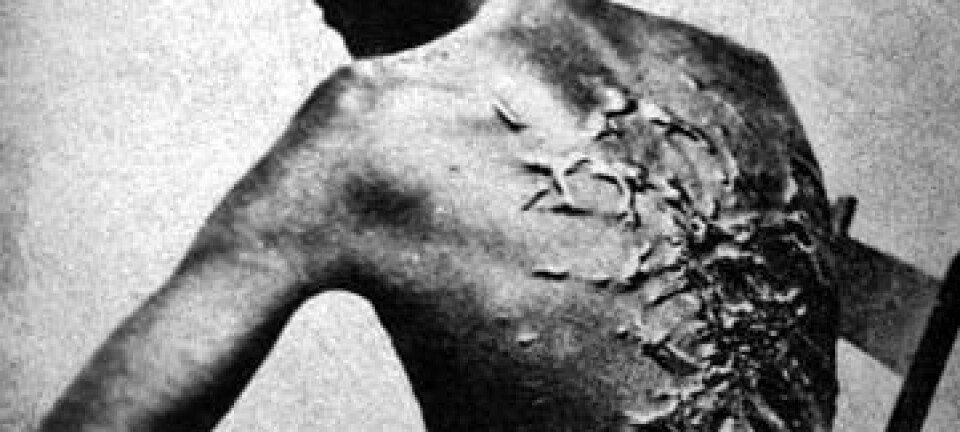
Professor: let’s fight corruption in Africa effectively
Foreign aid in Africa often lands in the wrong pockets. This leads many to call for a stop to aid Africa’s poor. A Professor of law suggests new, more sustainable solutions to the dilemma.
Surprisingly, academics argue that European countries should not cut the funding when they uncover that part of their development assistance to Africa has ended up in the wrong pockets.
At least not if they want to effectively combat corruption.
The message from Professor of International Development Law at Copenhagen University, Morten Broberg, is crystal clear: “Instead, they need to ensure that the recipient country is obliged to investigate the corruption, to find the culprits, and to impose deterring punishments”.
Corruption influenced by norms and punishment
Broberg explains that international research has shown that two factors influence the level of corruption:
-
Culture: Corruption is influenced by the extent to which corruption is considered acceptable or unacceptable.
- The risk of being exposed: If discovery is unlikely and the punishment is light, then the practice is more frequent. Broberg believes that the most effective way to combat corruption is to copy the system applied internally by the European Union. “The EU system, which is put in place to fight corruption internally, is far from perfect, but it works better than the present zero-tolerance aid policy” says Broberg.
Aiming for the head of the snake
Today, funds are fully or partly cut when corruption is discovered. This happened earlier this year in Tanzania. Broberg explains, that cutting aid funds harm the poor much more than the rich Tanzanians.
Therefore, Broberg suggests an entirely different approach: “Instead, we should aim for ’the head of the snake’. This means that when we agree to provide development assistance, we should simultaneously insist that the recipient country introduces effective sanctions in cases of misappropriation, so that even the most senior public servant may be sent to jail, if he has abused his position to direct some of the development assistance into his own pockets”, says Morten Broberg.
Corruption at two levels
According to The transparency International’s Corruption Perception Index, the problem of corruption pervades several African countries.
See index below.
The degree of corruption differs according to the type of project. When it comes to primary education misuse, fraud and corruption may be so massive that only a fraction – in some cases a mere 13-15 per cent - of the earmarked money actually reaches the intended beneficiaries.
Conceptually, corruption can be thought of as taking place at two levels:
- Petty Corruption: This refers to small payments that individuals and enterprises pay to have things work more smoothly; for instance where an enterprise pays the local police to be allowed to transport goods to the local container port.
- Grand Corruption: This concerns the situation where the rulers of a country unjustifiably abuse their position to take a share of, for instance, development assistance.
According to Broberg, more effective control and deterring sanctions against grand corruption is where we need to focus our efforts.
”It seems natural to assume that if those in power are precluded from unduly enriching themselves through corruption, then they will be much less willing to accept that those placed at lower levels in the hierarchy can get away with being corrupt. I call this a ‘top-down-approach to the problem’ says Broberg.
Copy the scheme the European Union applies internally
Broberg argues that more direct sanctions of corrupt rulers will be a more effective approach than the one the European Union applies today.
”We must copy the way that the European Union handles corruption internally. Here the European Union obliges the Member States to introduce effective sanctions against persons who misuse the funds.”
”If you discover that a recipient of EU-subsidies intentionally has infringed the rules for receiving subsidies, not only must the recipient repay those subsidies that unduly have been paid out, but in addition, under normal circumstances, the recipient must also be sanctioned in such a way that it deters others from infringing the rules.”
According to Broberg, the European Union must work towards ensuring that the beneficiary countries of development assistance have sufficiently effective systems for uncovering corruption – even where the corruption takes place at the very highest level.
"There must be effective systems for imposing deterring sanctions,” says Broberg.
Professor: We need information and smart sanctions
Professor of Development Economics at University of Copenhagen, Henrik Hansen agrees with Broberg. However, he also draws attention to the fact that the fight against corruption is incredibly difficult to win.
”It is truly difficult. Corruption is a kind of stable situation. If it has been present for an appreciable period of time, it also becomes a resistant situation,” says Hansen.
Just like Broberg he points to two different efforts which may be able to change the culture of corruption:
- Information: It is important that everybody in the receiving countries is aware of the risk he or she is running for their country when they misuse money.
- Smart sanctions: Sanctions that hit those who actually have misappropriated the development assistance – rather than the poor children whose school must close when the European Union cuts the continued funding in response to the corruption.
“You should not stop the funds from flowing, but instead ask the developing country: How do you sanction this concrete case of corruption? This, I believe, would have an impact,” says Hansen.
----------------
Read the original story in Danish on Videnskab.dk
Translated by: Morten Broberg and Henrik Hansen









